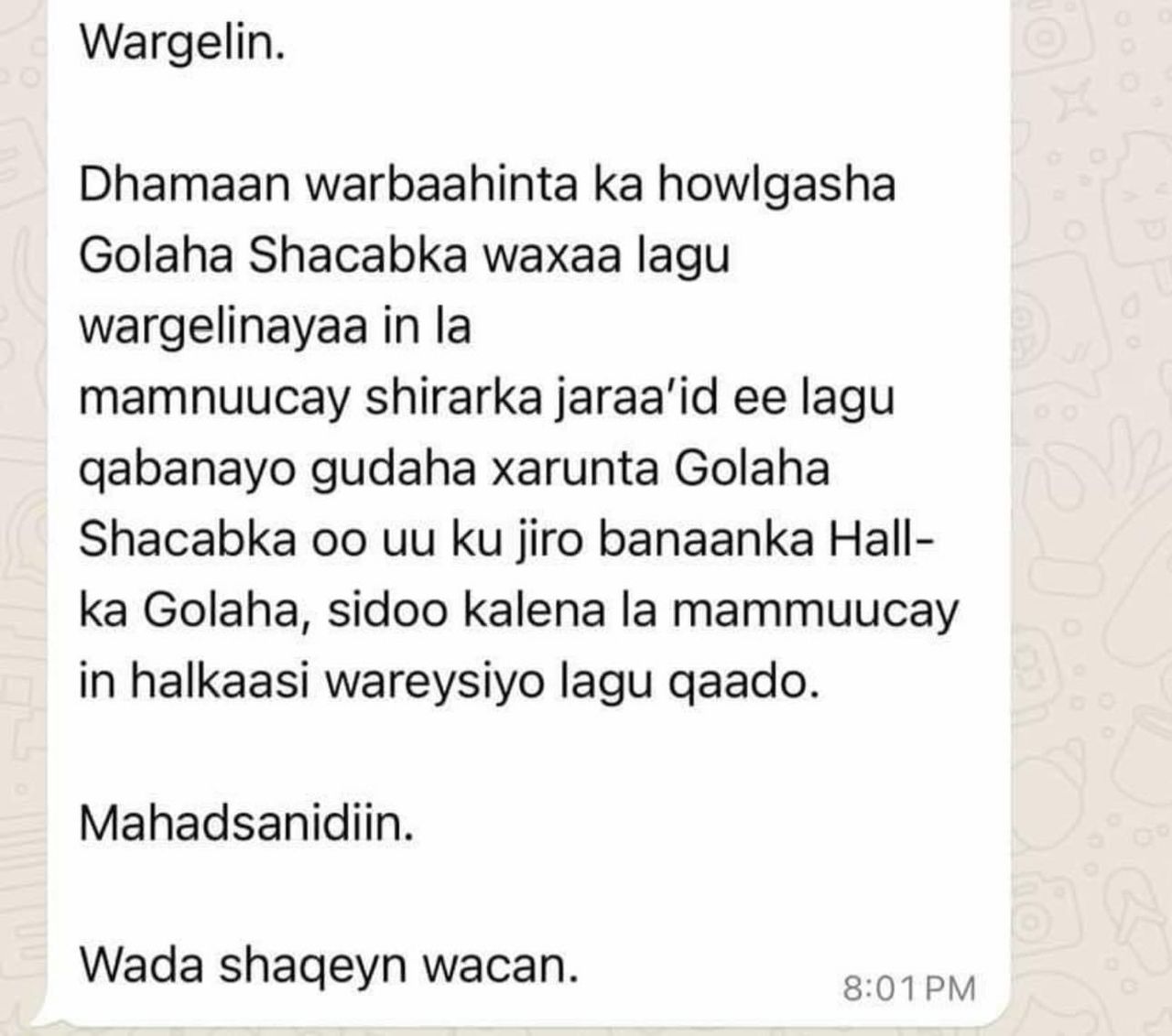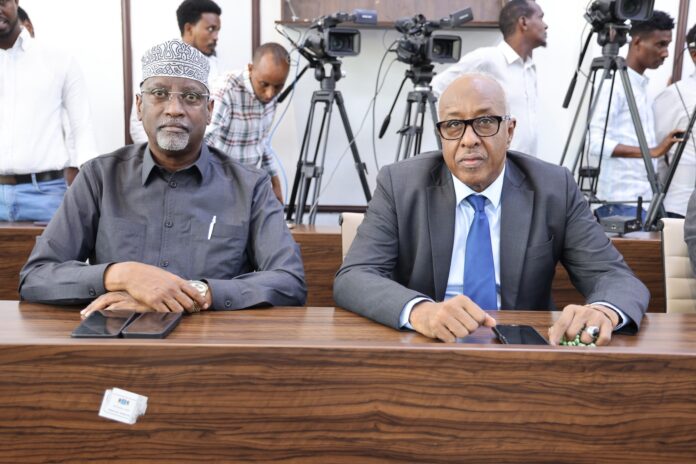MOGADISHU – The Somali Journalists Syndicate (SJS) condemns in the strongest possible terms the ban imposed on journalists, which prevents them from reporting on the Federal Parliament’s Lower House. This is the latest in a series of suppressive measures against the press in Somalia, aimed at silencing critical voices speaking out on the ongoing concerns regarding the tension between Egypt and Ethiopia in Somalia.
On 6 September, parliamentary media director sent a notice to journalists, prohibiting them from conducting interviews with MPs or recording briefings typically given by lawmakers after parliamentary sessions. The message, issued by a media director working at the Speaker’s Office and sent to journalists covering the Parliament via Whatsapp, stated: “All media operating in the People’s House are hereby informed that press conferences held inside the premises of the People’s House, including the outer area of the Hall, are prohibited. Additionally, conducting interviews in that location is also prohibited.”

On Monday, 9 September, several opposition lawmakers at the People’s House condemned the ban, attributing it to an attempt to silence opposition voices. At least three MPs who spoke at a press briefing that day inside the Parliament described the ban as a direct threat to MPs expressing views contrary to those of the government.
Following the press briefing, the parliamentary media director called on media outlets not to broadcast the remarks made by opposition MPs. However, the management of Radio Risaala informed SJS that they decided to air the MPs’ comments despite the restriction.
On Wednesday, 11 September, two journalists from Radio Risaala—Abdukadir Mohamed (reporter) and Mohamed Said (cameraman)—were denied entry into Parliament. When they sought an explanation, the parliamentary media director informed Radio Risaala’s management that the blockage was related to the station’s decision to broadcast the MPs’ remarks.
On 10 September, Speaker of Parliament Aden Mohamed Nur (Sheikh Aden Madobe) summoned several Mogadishu media directors to his office. Two participants from the meeting told SJS that during the discussion, the Speaker explained that the media ban on parliamentary coverage “applies to opposition MPs who may comment on the issue of Ethiopia and Egypt.” He added that “the ban will last for a few weeks.”
Separately, on Thursday, 12 September, President Hassan Sheikh Mohamud summoned a meeting with select local media directors, chosen based on clan affiliation. According to some participants who spoke to SJS, the president urged the media directors to align with his government against “the enemies of his administration.” According to the participants who requested anonymity, the president further urged the media to support his government which he said is facing “war with Ethiopia and those supporting them.”
This meeting occurred just two days after Southwest State President Abdiaziz Hassan Mohamed (Laftagareen) addressed a gathering in Baidoa, where he expressed support for the people of the Bakool region. Last month, the residents of Hudur and Wajid, two towns in Bakool of the Southwest State, had protested against the reported deployment of Egyptian forces and the removal of Ethiopian peacekeepers in their region.
“The continuous targeting of independent journalists in Mogadishu and attempts to control media narratives are a grave violation of press freedom. The journalists have the right to maintain neutrality in all contentious matters and they should not be forced to compromise their professional and independent reporting,” said SJS Secretary General, Abdalle Mumin.
“We also call for the immediate lifting of the restrictions imposed on journalists reporting from the Lower House of the Somali Federal Parliament. We urge the government to respect journalists’ rights to report freely on Parliamentary sessions so that the public will have the right to know what is happening in the Parliament,” added Mr. Mumin.


